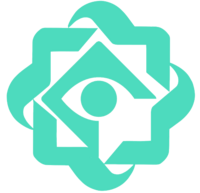Union Central Television: Difference between revisions
No edit summary |
|||
| Line 60: | Line 60: | ||
== History == | == History == | ||
=== Founding === | === Founding === | ||
UCTV was officially formed on 11 January 1980, as the legal successor to the [[Union Broadcasting Administration]], that served the [[Union of Khazestan and Pardaran]]. Upon its formation, it incorporated [[Irvadi People's Republic|Irvadistan]]'s sole broadcaster, [[Al-Taḍāmuniyy]] into its structure. UCTV until 1992, was the only permitted television and radio broadcaster, alongside the [[Resistance Broadcasting Corporation]]. The broadcaster swiftly established itself across the new [[Union of Zorasani Irfanic Republics]], while only providing three television channels and three radio stations. | |||
Between 1980 and 1989, UCTV's products were entirely devised by the [[State Administration for Broadcasting and Religious Propagation]], insofar that virtually all broadcasting with the exception of sports coverage was {{wp|propaganda}} and {{wp|nationalism|nationalistic}}. According to UCTV's charter at the time, its duty was "promote and propagate the unification of all Zorasani people into the new Union." As time progressed, the [[Zorasani Irfanic Revolutionary Army|military]]'s control over the broadcaster receded as it developed the [[Resistance Broadcasting Corporation]] to serve its interests, this enabled a boom in {{wp|soap operas}}, {{wp|dramas}} and {{wp|television films}}. Even though the variety of shows increased during this time, all maintained a patriotic theme or message. | |||
By the 1990s, UCTV's strict guidelines were liberalised and its variety of products expanded dramatically. This was followed by a liberalisation of media in general, coinciding with a wider social and cultural liberalisation through the [[Saffron Period]]. In 1992, private and semi-private broadcasters were formed, reducing UCTV's market share - the broadcaster responded by launching UCTV-4, 5 and 6 in 1993. These channels included numerous game-shows, comedic and satire shows and high-quality dramas. These efforts were relatively successful, with UCTV restoring its strong market share by 1996. | |||
===Late 20th century=== | ===Late 20th century=== | ||
[[File:UCTVstudio.png|250px|thumb|right|In 2012, UCTV moved most of its studios to the Basheer Complex in [[At-Turbah]], the state capital of [[Riyadha]].]] | [[File:UCTVstudio.png|250px|thumb|right|In 2012, UCTV moved most of its studios to the Basheer Complex in [[At-Turbah]], the state capital of [[Riyadha]].]] | ||
Revision as of 22:27, 27 January 2020
 | |
| Country | |
|---|---|
First air date | 11 January 1980 |
| Headquarters | Basheer Complex, At-Turbah, Riyadha, Zorasan |
Broadcast area | Worldwide |
| Owner | (State Administration for Broadcasting and Religious Propagation) |
Launch date | 2 February 1980 |
Former names | Union Broadcasting Administration |
| 25 | |
| 19 | |
| Callsigns | Voice of Zorasan (external) |
| Affiliation | E'lam Network |
Union Central Television (Pasdani: تلویزیون صمیم اتحا; Telviziyun Sameem-e Ettehād; Badawiyan: تِليفِزْيون أَوْسَط الاتحاد; TilifizyūnʼAwsat al-Ittiḥād), UCTV, is the predominant public television network in Zorasan. UCTV has a network of 11 channels broadcasting different programmes and is accessible to more than one 200 million viewers. Most of its programmes are a mixture of news, documentary, social education, comedy, entertainment, and drama, the majority of which consists of Zorasani soap operas, documentaries and entertainment. Prior to 2005, UCTV was the primary producer of religious programming, until a subordinate affiliate, E'lam Network was established. UCTV was established on January 11 1980 as the successor to the Union Broadcasting Administration, and it is a news and public opinion organization, and an ideological and cultural front in Zorasan. As a state television station it is responsible to the Government of Zorasan, through the Union Ministry for Irfanic Culture and National Harmony.
History
Founding
UCTV was officially formed on 11 January 1980, as the legal successor to the Union Broadcasting Administration, that served the Union of Khazestan and Pardaran. Upon its formation, it incorporated Irvadistan's sole broadcaster, Al-Taḍāmuniyy into its structure. UCTV until 1992, was the only permitted television and radio broadcaster, alongside the Resistance Broadcasting Corporation. The broadcaster swiftly established itself across the new Union of Zorasani Irfanic Republics, while only providing three television channels and three radio stations.
Between 1980 and 1989, UCTV's products were entirely devised by the State Administration for Broadcasting and Religious Propagation, insofar that virtually all broadcasting with the exception of sports coverage was propaganda and nationalistic. According to UCTV's charter at the time, its duty was "promote and propagate the unification of all Zorasani people into the new Union." As time progressed, the military's control over the broadcaster receded as it developed the Resistance Broadcasting Corporation to serve its interests, this enabled a boom in soap operas, dramas and television films. Even though the variety of shows increased during this time, all maintained a patriotic theme or message.
By the 1990s, UCTV's strict guidelines were liberalised and its variety of products expanded dramatically. This was followed by a liberalisation of media in general, coinciding with a wider social and cultural liberalisation through the Saffron Period. In 1992, private and semi-private broadcasters were formed, reducing UCTV's market share - the broadcaster responded by launching UCTV-4, 5 and 6 in 1993. These channels included numerous game-shows, comedic and satire shows and high-quality dramas. These efforts were relatively successful, with UCTV restoring its strong market share by 1996.
Late 20th century
Modern
Television channels
| Name | Channel number | Description |
|---|---|---|
| UCTV-1 | 1 12 (HD) |
General-purpose programming |
| UCTV-2 | 2 13 (HD) |
General-purpose programming |
| UCTV-3 | 3 13 (HD) |
General-purpose programming |
| UCTV-4 | 4 14 (HD) |
Entertainment |
| UCTV-5 | 5 15 (HD) |
Entertainment |
| UCTV-6 | 6 16 (HD) |
Drama and Documentaries |
| UCTV-Sport | 7 111 (HD) |
Sports |
| UCTV-Majles | 8 99 (HD) |
Coverage of Zorasani parliament |
| UCTV-Artesh | 9 107 (HD) |
News and documentaries relating to the Zorasani Irfanic Revolutionary Army |
| UCTV-News | 10 106 (HD) |
News |
| UCTV-Enjela | 12 78 (HD) |
Religious programming |
